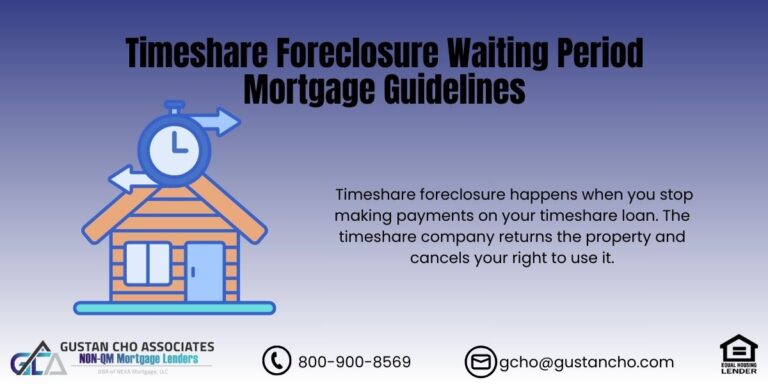Mortgage Market Outlook On Mortgage Rates And Regulations
This Article Is About The Mortgage Market Outlook On Mortgage Rates And Regulations
2018 was a great year for the housing and mortgage markets where it is clear and obvious that the housing market has made a major comeback. With the election of President Donald J. Trump, the economy and all economic news went viral in a good way. Whenever there is good news in the economy and growth, mortgage interest rates go up.
Housing prices hit historic highs in most regions of the U.S. Florida, California, Arizona, Illinois, Ohio, Georgia, and Texas. These regions had more demand for housing than inventory. Mortgage Companies had record-breaking earnings in 2018. There are no signs of a slowdown for 2019.
In this article, we will discuss and cover the mortgage outlook during the hot Trump economy.
Mortgage Market Outlook For 2019
The Dow Jones Industrial Average hit five historical highs in 2018. The Dow is nearing 25,000. President Donald Trump led the nation’s largest tax cut in the history of the United States. The country is being run like a business and there is no sign of any slowdown.
Mortgage Market Outlook for 2019 sees sure signs of higher housing prices nationally. Mortgage Rates will no doubt increase. Many small mom and pop mortgage broker refinance shops are already noticing a major slowdown in refinance business due to rising mortgage rates But will this trend continue? Is the mortgage outlook for 2018 promising or are we going to have another housing bubble blast? There was a double-digit appreciation of housing values.
Many home buyers jumped on the home buying bandwagon. As a loan officer, I clearly witnessed where I issued pre-approval letters to home buyers. These buyers lost the property to another buyer who offered above asking prices.
Home Prices In Florida Selling Above Market Value
In the state of Florida, there were international investors who purchased dozens of homes in the same neighborhood way above asking prices:
- These were cash deals
- Many homes that my client’s purchased were not appraising out at the purchase price due to sellers asking above-market prices on their homes
- 2018 was a great stellar year for home sellers
- What does the mortgage outlook look for in 2019?
- Will the buying frenzy continue?
- Will the housing market continue to rise?
- Will mortgage rates remain the same?
One thing we know for sure is that mortgage lending will be tougher and harder to qualify for a mortgage loan due to 2018 new mortgage rules and regulations such as the QM Rule, Qualified Mortgage Rule which will be implemented a couple of years ago.
2019 Mortgage Market Outlook: Will Housing Prices Continue To Rise?
The housing market outlook seems promising for sellers of homes but doubts it will be as good as 2018. Mortgage rates have spiked up more than one percentage point in a period of several weeks in mid-2018. The refinance mortgage market came to an abrupt halt and housing sales had an immediate slowdown. In the first half of 2018, many parts of the country have seen double-digit housing price increases. Realtors and lenders have not seen such a spurt in business since prior to the Great Recession of 2008.
Many realtors and lenders had record-breaking sales in 2018. How about 2018? How will the mortgage outlook seem for 2018 with the new mortgage rules and regulations? Will housing prices still continue to rise? Could there be a housing correction?
Economy Is Hot With Good News But Mortgage Rates Keep Rising
From the looks of things, a good economy means more jobs. Tax cuts legislation that went into effect by President Trump and Congress would save an average American Family earning $75,000 more than $2,000 per year. The historical high of the Dow Jones Industrial Average means higher 401k’s and more wealth to Americans in the workforce. Homeowners will see the prices of their homes escalate. However, for first-time home buyers and home buyers who were planning on buying homes in 2019, it means higher home prices and higher mortgage rates.
Buying A Home In 2019
Both Fannie Mae and Freddie Mac increased conforming loan limits to $453,100. HUD, the parent of the Federal Housing Administration (FHA), followed with the increase of FHA Loan Limits to $294,515. Fannie/Freddie and HUD increased loan limits due to rising housing prices. The loan limit increase will take effect in January 2018. Many potential homeowners are on standby and do not know whether to jump in or wait for a correction. Look at the stock market.
Many experts have been preaching a stock market correction when the market was 25% lower than what it is today. It seems that the stock market continues to go up. There will be a correction and when there is, the stock market will probably tank like how the housing market did back in 2008. This is solely my opinion. From my work and life experience, I am a strong believer where if something keeps on going up with no fundamental reason, it’s bound to come down equally as fast. Unfortunately, many hard-working Americans will probably get hurt by such a market crash, whether it is a real estate market crash or a securities market crash.
Mortgage Market Outlook On Lending
Although unemployment numbers seem to be improving, there are still millions of Americans who are not on the unemployment numbers because they have just given up looking for work or are unemployed. Many of those who lost their businesses are just merely getting by working odd jobs and just making ends meet. Others who had great paying jobs are now working part-time jobs or multiple part-time jobs. There are still millions of folks who have not recovered from the Great Depression of 2008 and things do not seem positive. Almost half of the American homeowners have no equity or negative equity in their homes and are pretty much stuck there unless they intend on foreclosing or short selling their homes. Those folks who are thinking of purchasing a new home in 2019 will be facing tougher lending criteria and higher mortgage rates than in 2018.
Mortgage Market Outlook Under The Dodd-Frank Mortgage Reform
New Mortgage Market Outlook on mortgage guidelines and rules will take effect under the Dodd-Frank Mortgage Reform Act. Lenders will be required to tighten and abide by the new lending guidelines for Qualified Mortgages. It is also known as QM in order for them to be limited from lawsuits by borrowers. Under the new Qualified Mortgage guidelines, a loan cannot exceed a back-end debt to income ratio of 43% on conventional loans. This holds true even though borrowers put a down payment of more than 20% down on a home purchase.
All fees and costs in originating a mortgage loan cannot exceed 3%. We are anticipating more lender overlays. Lenders will be scrutinizing every loan more carefully than ever.
No Waiting Period After Foreclosure And Housing Event
Gustan Cho Associates launched non-QM loans in early 2018. There is no waiting period after foreclosure, deed in lieu of foreclosure, short sale. There is no loan limit with NON-QM Loans. No waiting period after Chapter 7 Bankruptcy discharged date with non-QM loans. Non-QM loans are alternative financing for homebuyers who had a prior bankruptcy and/or recent housing event such as a foreclosure and/or short sale. With escalating housing prices, homebuyers no longer have to wait for the two, three, four years after bankruptcy and/or foreclosure to qualify for a mortgage. Buyers can take advantage of buying a home before it keeps on going up. 10% to 30% down payment is required on non-QM loans. Mortgage rates are higher than government and/or conventional loans. Non-QM loans are a bridge for homebuyers who do not qualify for government and conventional loans due to waiting period requirements.
Business Owners As Homeowners
President Trump and Congress passed historic tax cuts that would benefit business owners in 2019. Prior to last year, many business owners had a hard time qualifying for mortgages due to being self-employed and the write-offs on their tax returns. Gustan Cho Associates has created and launched the bank statement mortgage loan program for self-employed borrowers in mid-2018. This loan program requires no tax returns from business owners and bank deposits are used to calculate borrowers’ income.
How Does The Bank Statement Mortgage Loan Program For Self Employed Borrowers Work?
The bank statement mortgage loan program for self-employed borrowers works as follows:
- 12 and/or 24 months business or personal bank statements are averaged to derive for monthly income
- If personal bank statements are used, then 100% of deposits are used
- If business bank statements are used, then 50% of deposits are used
- No overdrafts
- Needs to come to be the same bank statements for the past 24 months
- 10% to 20% down payment required on the home purchase
- Loan Limits can be Jumbo Loans up to $3 million
Home Buyers looking to qualify for a mortgage by a direct lender with no overlays on government and/or conventional loans can contact us at Gustan Cho Associates at 800-900-8569 or text us for a faster response. Or email us at gcho@gustancho.com. We are available 7 days a week, evenings, weekends, and holidays.
This BLOG On Mortgage Market Outlook Was UPDATED On October 30th, 2018






